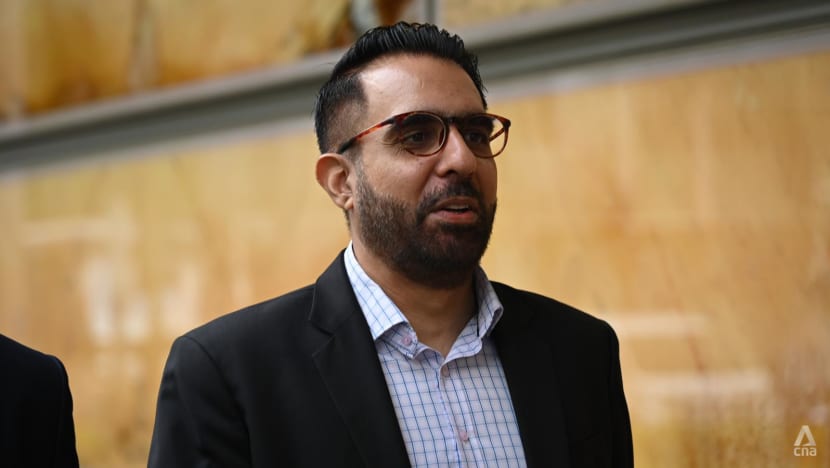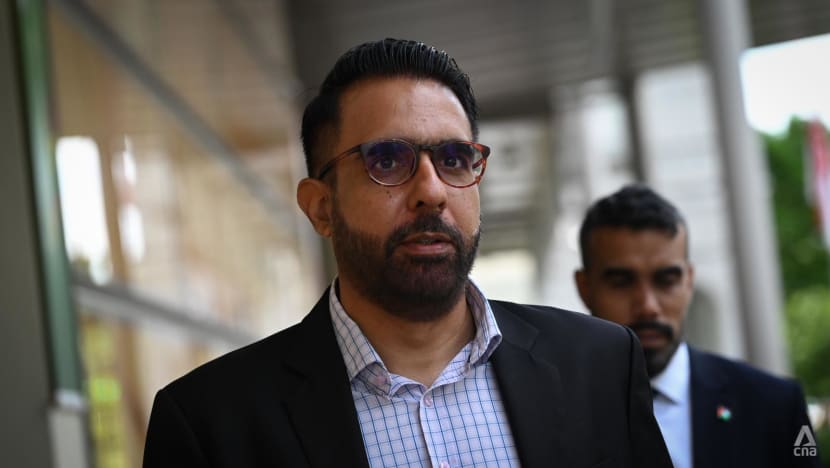Pritam Singh fails in bid to have case heard in High Court
Justice Hoo Sheau Peng said there were no strong public considerations to warrant a transfer of the case to the High Court, unlike S Iswaran's case - which potentially has a wide-reaching impact on all public servants.

Leader of the Opposition and Workers’ Party secretary-general Pritam Singh arriving at the Supreme Court on Sep 9, 2024. (Photo: CNA/Syamil Sapari)

This audio is generated by an AI tool.
SINGAPORE: Leader of the Opposition Pritam Singh on Monday (Sep 9) failed in his bid to have his case heard in High Court.
Singh, 48, faces two charges of lying to a Committee of Privileges over Raeesah Khan's case.
His lawyers had argued for his case to be transferred from the State Courts to the High Court, comparing it with the case of former transport minister S Iswaran, which the prosecution had asked to be transferred to the High Court due to strong public interest considerations.
In dismissing Singh's application, Justice Hoo Sheau Peng found that there are no strong public interest considerations to justify the transfer.
She rejected Singh's argument that his status as a politician gives rise to strong public interest considerations.
"The fundamental rule is that all accused persons regardless of their status is to be treated equally," said Justice Hoo. "There's no justification for treating politicians differently from other accused persons."
She said transfers of criminal cases from the State Courts to the High Court "depart from the ordinary course of justice" and a court's power to order such a transfer must be exercised only "in rare and exceptional circumstances".
While Iswaran's case is "not completely irrelevant", "it certainly does not assist the applicant in the way he suggests", Justice Hoo said.
She emphasised that the potentially wide-reaching impact of Iswaran's trial is the key distinction between the two cases.
Iswaran's case involves the interpretation of Section 165 - for obtaining valuables as a public servant - and the parameters set by the court may provide guidance to all public servants on how not to transgress the law.
In Singh's case, the charges against him "merely raise factual issues" - that is, whether he wilfully gave false testimony before the parliamentary committee - the judge said.
"There are no issues of law of unusual difficulty, no wider implications for the public generally, and no strong public interest considerations that warrant a transfer," she added.
When asked by CNA if the outcome meant the trial was proceeding as planned on Oct 14, Singh agreed. He declined to comment on the dismissal of his application.

BACKGROUND OF THE APPLICATION
Trial dates in October in the State Courts had been fixed for him before Deputy Principal Judge Luke Tan.
However, seven weeks before the trial was slated to begin, Singh turned to the High Court with his lawyers and asked to have his case heard there instead, comparing it to the case of former transport minister S Iswaran.
Mr Andre Darius Jumabhoy and Mr Aristotle Emmanuel Eng argued that there was “strong public interest” for the case, which is the first of its kind, to be heard in the High Court.
They quoted a speech by Leader of the House, Minister Indranee Rajah, and said the case goes to “the very essence of our democracy”.
They also argued that Singh's case is potentially more impactful than Iswaran's - the Parliament (Privileges, Immunities and Powers) Act, which Singh was charged under, extends beyond Singh and applies to Members of Parliament.
Iswaran’s case had been transferred to the High Court with the prosecution's agreement.
The prosecution opposed Singh’s application, saying Iswaran’s case had been referred to the High Court under a different section and that this was “a backdoor attempt to review the public prosecutor’s discretion”.
Deputy Attorney-General and Senior Counsel Ang Cheng Hock explained the rationale for Iswaran’s case being transferred to High Court - the bulk of the charges he faces, under Section 165 for obtaining valuables as a public servant, applies widely to all public servants, including ministers and judges.
Iswaran’s case thus potentially impacts how public servants should conduct themselves when dealing with members of the public.
In contrast, Singh’s case is “a purely factual inquiry” - whether he lied or not, the prosecution argued.
In a statement on Facebook after the hearing, Singh wrote that he and his lawyers were "aware that it was going to be an uphill battle" to secure the transfer.
However, he said it was "very important", "if not critical" to him to apply for the transfer in view of the prosecution's decision to transfer Iswaran's case to the High Court, calling this "an unusual and uncommon course of action".
He said that while he disagreed with many aspects of the prosecution's decision, he acknowledged the work of the prosecution and the High Court in responding to his application.
SINGH’S CHARGES
The two charges Singh faces allege that he wilfully gave a false answer on Dec 10, 2021, and Dec 15, 2021, in the public hearing room at Parliament House.
This was during an inquiry before the Committee of Privileges, centring on the case of Raeesah Khan, who had lied over a sexual assault case and accused the police of mishandling the case.
Singh allegedly testified falsely that he had wanted Ms Khan to clarify what she said in parliament about accompanying a rape victim to a police station, and that he spoke to Ms Khan as he wanted to convey to her that she had to clarify what she said over the same issue.
If convicted of lying under the Parliament (Privileges, Immunities and Powers) Act, he could be jailed for up to three years, fined up to S$7,000 (US$5,300), or both per charge.
The AGC previously said it would be seeking a fine for each of Singh's charges if he is convicted.














